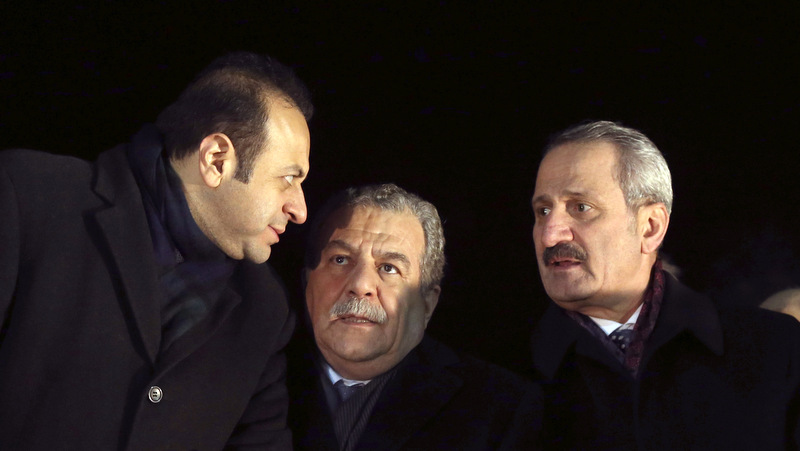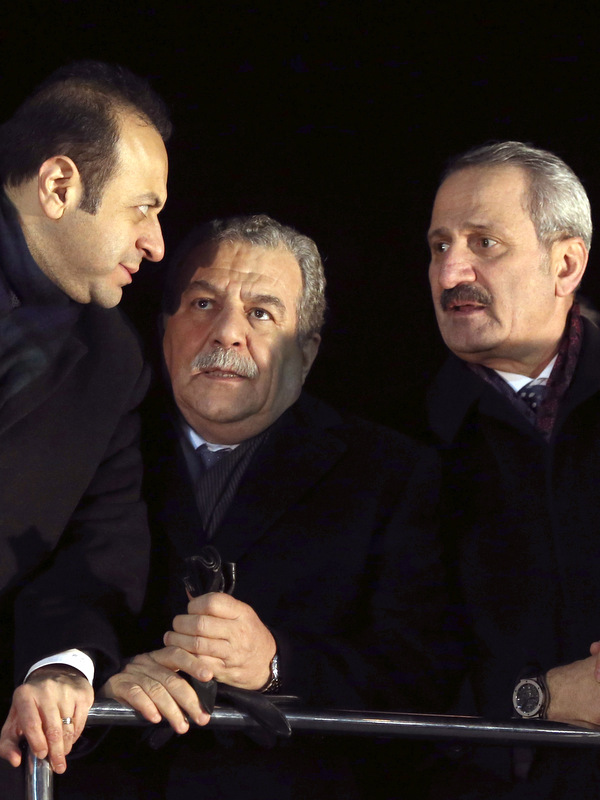
Brussels– In June 2013, Berkin Elvan, a 14-year-old Turkish boy, was out buying bread for his family when he got caught in the crosshairs of unrest in the streets of Istanbul. In the chaos, he was hit in the head by a tear gas canister that had most likely been fired by police at close range.
After 269 days in a coma, Elvan died on March 11. His tragic circumstances have made him the symbol of Turkey’s record of police violence against demonstrators, which, according to Human Rights Watch, is an endemic problem.
The news of the boy’s death came on the morning of a European Parliament debate on the European Union’s latest progress report on the negotiations for Turkey’s accession to the EU. Euro-parliamentarians and EU officials at the debate paid tribute to the boy, noting that the case is symptomatic of a wider trend throughout Prime Minister Recep Tayyip Erdogan’s tenure, which includes imposing political control on judges, jailing critical reporters and threatening to block people from using YouTube and Twitter.
In a resolution on Wednesday — passed by 475-153, with 43 abstentions — the European Parliament stated that it “deeply regrets” the loss of life among protesters and police, the “excessive use of force” by police and the “violent acts committed by some marginal groups.” The deputies also denounced what they consider the “apparent failure of the courts to penalize all those state officials and police officers responsible for excessive violence, loss of life and serious injuries to Gezi Park protesters.” They encouraged the police to establish methods for “dealing with public protests in a more restrained way.”
Members of the European Parliament (MEPs) also expressed their deep concern over recent allegations of high-level corruption in Turkey. They were referring to a massive corruption probe opened on Dec. 17, 2013 to investigate corruption and bribery allegations against high-profile politicians, including four former ministers and businessmen.
In reaction to the probe, the Turkish government removed the prosecutors and police officers in charge of the investigations. The European Parliament said the move goes “against the fundamental principle of an independent judiciary and deeply affects the prospects for credible investigations,” adding that “tackling corruption at all levels is an important element of a functioning rule of law system.”
Ria Oomen-Ruijten, a Dutch MEP who wrote the resolution, noted that despite the crackdown that caused Elvan’s death, relations had been moving in a positive direction until December, when Erdogan removed prosecutors and police investigating corruption among his clan.
“Turkey used to be on a good path and then we had the events and the fraud allegations in 2013,” she commented during the debate held prior to the vote.
Reinforcing the control on the judiciary
In October 2005, when the EU opened accession negotiations with Turkey, Ankara committed itself to the fulfillment of the Copenhagen criteria, which remains the basis for accession to the EU. These include political criteria such as the stability of institutions guaranteeing democracy, the rule of law, human rights and the protection of minorities, as well as economic criteria such as the existence of a functioning market economy and the capacity to cope with competitive pressure and market forces within the bloc.
But two recent draft bills are going to make it more difficult for the European Parliament to say Turkey fulfills the Copenhagen criteria. These draft bills include one amending the law on the High Council of Judges and Prosecutors — a move widely believed to reinforce the Ministry of Justice’s control on the judiciary — and one allowing the government to shut down websites without a court order.
“It looks like the separation of powers, which is of vital importance, is not there anymore. When a minister of justice can have the last say in an investigation, willingly or not, then there is something wrong,” said Oomen-Ruijten.
“Justice is the key issue,” she added. “Turkey should not do it for us. They should do it for the modernization of the country. It is to the benefit of Turkish citizens”.
The MEPs also expressed their “great concern” over the dismissal of journalists who criticized the government’s reactions to the Gezi Park events, noting that “freedom of expression and media pluralism are at the heart of European values and an independent press is crucial to a democratic society.”
Alexander Graf Lambsdorff, a German MEP, said during the session, “There are more journalists in jail in Turkey than in China or Iran and now the Prime Minister wants to close down YouTube and Twitter because people are saying things he doesn’t like.”
He also expressed his belief that relations between Turkey and the EU have gotten worse, and he wants the accession process to be deferred “until Turkey cleans up its act.”
Meanwhile, the European Parliament welcomed Turkey’s commitment to the provision of humanitarian assistance to almost 1 million Syrian refugees. But they also called on Turkey to put into place adequate policies aimed at “providing effective international protection to asylum-seekers” and securing “respect for the human rights of migrants.” This may sound like a bizarre order, given the way the EU has been treating migrants, including Syrian refugees.
In other words, Turkey is facing what is probably the most critical progress report yet in its bid to join the EU. Andrew Duff, a British MEP, tweeted that it was the “most pessimistic European Parliament debate I can recall about Turkey.”
EU being dishonest?
There is no doubt that the European Parliament wants the EU to continue with accession negotiations, as it has stated that these negotiations provide a “clear framework for Turkey’s reform.” To this end, MEPs asked the European Council to make efforts to start negotiating accession chapter 23, which covers judiciary and fundamental rights issues, and chapter 24, which covers justice and home affairs.
Stefan Füle, Commissioner for Enlargement and European Neighborhood Policy, appeared to be of the same opinion when he called for European governments to lift their veto on opening chapter 23 to help him tackle the issues more thoroughly.
“This is what Turkey is asking for, so let’s take their word for it and deliver results on this crucial issue… You can’t keep saying we should be doing more on one side but then being more restrictive on accession talks,” he noted during the debate.
Füle said the death of Berkin Elvan is “sad but an important reminder of Turkish people’s aspirations” to live in a European society. In its resolution, the European Parliament concurs with Füle, saying the “unprecedented wave of protests reflects the legitimate aspirations of many Turkish citizens for deeper democracy.”
Although accession negotiations between the EU and Turkey officially began in 2005, little progress has been achieved. A series of political obstacles — notably over Cyprus — and resistance to Turkish membership from key member states like Germany and France — over the Islamic character of the country, its location mainly outside of geographical Europe or economic reasons — have brought negotiations to a snail’s pace.
As a result, many observers are now viewing the EU’s attitude as dishonest, as if it is only pretending to be negotiating Turkey’s accession, but really being extremely reluctant and making sure negotiations progress only slowly.
For its part, Turkey has started realizing that it may never be successful in its decades-long bid for EU membership. The one major consequence is that the EU has probably lost its leverage with Ankara.


